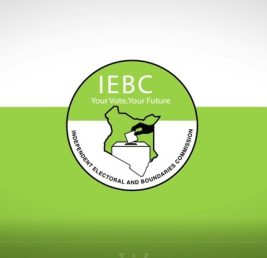
IEBC Verification work
Full-Time @Independent Electoral and Boundaries Commission (IEBC) posted 9 months ago in Government & Civil Shortlist Email JobJob Detail
-
Job ID 10142
-
Offered Salary 1000
-
Career Level Others
-
Experience 5 Years
-
Gender Both
-
Industry Management & Administration
-
Qualifications Degree Bachelor
Job Description
IEBC Verification: Ensuring Free, Fair, and Credible Elections in Kenya
The Independent Electoral and Boundaries Commission (IEBC) verification process is a fundamental component of Kenya’s electoral system. It ensures the credibility, transparency, and integrity of elections by validating voter details, candidate eligibility, election results, and compliance with electoral laws. The verification process plays a crucial role in preventing electoral fraud, enhancing public confidence, and ensuring that elections are conducted in a free and fair manner.
1. Understanding IEBC Verification
IEBC verification refers to the systematic process of authenticating voter registration, candidate eligibility, and election results to uphold the democratic process. This process includes:
- Voter Registration Verification – Ensuring all registered voters are eligible to participate.
- Candidate Verification – Confirming that all candidates meet the legal requirements.
- Results Verification – Validating election results before the official declaration.
- Technology and Security Verification – Ensuring electronic voting systems function correctly.
Each of these steps is critical to the integrity of Kenya’s elections, minimizing the risks of fraud, errors, and electoral disputes.
2. Voter Registration Verification
Before every election, the IEBC conducts a voter registration exercise, allowing eligible Kenyans to register. Once the registration phase is completed, the commission undertakes a verification process to ensure the accuracy and integrity of the voters’ roll.
Key Aspects of Voter Verification:
- Confirming voter details: Registered voters can check and verify their details, including names, polling stations, and identification numbers.
- Detecting errors and duplicates: The verification process helps identify and correct any errors or inconsistencies in the voter register.
- Removing ineligible voters: This includes removing deceased persons, underage voters, and duplicate registrations.
- Public participation: The IEBC allows voters to raise objections if they identify irregularities in the register.
To facilitate this process, the IEBC provides various means for verification, including:
- Physical verification at designated voter registration centers.
- Online verification through the IEBC website.
- SMS verification services for convenient access.
3. Candidate Verification
The IEBC verification process also involves screening individuals seeking elective positions to ensure they meet the constitutional and legal requirements.
Steps in Candidate Verification:
- Eligibility Check: Candidates must meet the qualifications outlined in the Kenyan Constitution, such as age, education, and citizenship requirements.
- Academic Qualifications Verification: IEBC collaborates with educational institutions to confirm the authenticity of certificates submitted by candidates.
- Criminal Record Check: Individuals convicted of certain offenses, such as corruption or election-related crimes, may be disqualified.
- Nomination Papers Review: Each candidate must submit valid nomination papers and meet party nomination rules.
This process prevents unqualified individuals from contesting and ensures only legally compliant candidates appear on the ballot.
4. Election Results Verification
One of the most crucial phases of IEBC verification is the tallying and verification of election results. This process ensures that results are accurate, transparent, and reflective of the will of the people.
How Election Results are Verified:
- Polling station tallying: Votes are counted at polling stations, and results are recorded on Form 34A for the presidential election.
- Transmission of results: Election results are electronically transmitted using the Kenya Integrated Election Management System (KIEMS) to ensure quick and secure reporting.
- Verification at constituency and national tallying centers: Results from polling stations are aggregated and verified at constituency tallying centers (Form 34B) and later at the national tallying center (Form 34C).
- Cross-checking with physical forms: The IEBC manually verifies the electronic results against physical result forms to prevent tampering or discrepancies.
- Public and party agent scrutiny: Political party agents, observers, and media houses are allowed to monitor the verification process to promote transparency.
5. Technology and Security in IEBC Verification
The IEBC employs modern technology to enhance the accuracy and security of the verification process. Some of the key technologies used include:
- Biometric Voter Registration (BVR): Ensures that each voter is uniquely identified using fingerprints and facial recognition, reducing the risk of double voting.
- Kenya Integrated Election Management System (KIEMS): Used for electronic voter identification and transmission of election results, minimizing human errors and manipulation.
- Blockchain and Data Security: The IEBC has explored the use of blockchain technology to enhance the security of transmitted results.
These technological measures help improve efficiency and minimize electoral fraud.
6. Post-Election Verification and Dispute Resolution
After elections, the verification process continues through audits and, if necessary, court petitions. If election results are disputed, the IEBC must provide verifiable evidence to the Supreme Court or other relevant judicial bodies.
Post-Election Verification Steps:
- Results audits: Independent audits may be conducted to verify the authenticity of election results.
- Recounts and scrutiny: Courts may order a recount of votes in disputed constituencies.
- Legal petitions: Candidates or parties can challenge election outcomes in court if they suspect irregularities.
The 2017 presidential election in Kenya saw the Supreme Court nullify the results due to verification flaws, demonstrating the importance of a rigorous and transparent process.
7. Challenges in IEBC Verification
Despite its significance, the IEBC verification process faces several challenges:
- Technology failures: Malfunctions in the KIEMS system can delay voter identification and results transmission.
- Political interference: External influence can threaten the impartiality of the verification process.
- Legal disputes: Frequent election petitions and legal battles challenge the IEBC’s credibility.
- Public mistrust: Some Kenyans remain skeptical about the effectiveness of the IEBC verification process.
To address these issues, the IEBC must enhance transparency, adopt advanced security measures, and engage stakeholders in improving electoral processes.
Conclusion
IEBC verification is a cornerstone of Kenya’s electoral process, ensuring that elections are credible, free, and fair. By verifying voter registration, candidate eligibility, and election results, the IEBC upholds democracy and prevents electoral malpractices. The use of technology, legal frameworks, and public participation strengthens the verification process, reducing the risk of election disputes. However, challenges such as system failures, political interference, and legal disputes must be continuously addressed to enhance electoral integrity.
For Kenya to maintain a strong democracy, the IEBC verification process must remain transparent, inclusive, and technologically robust, ensuring that every vote counts and the will of the people is upheld.
Other jobs you may like
-

Climate Workx:11,000 Youth Needed For Kazi Mtaani 2025 Program
- @ Climate Workx
- Nairobi, Kenya, Kenya
